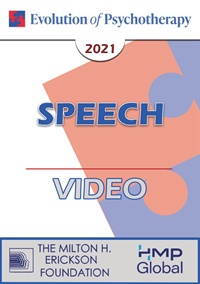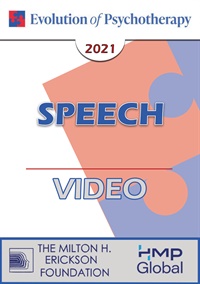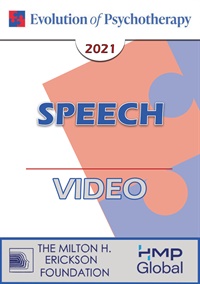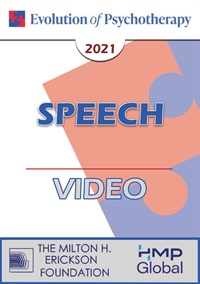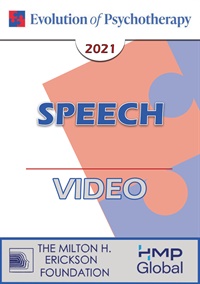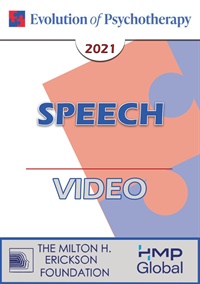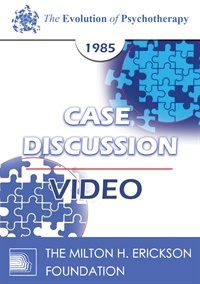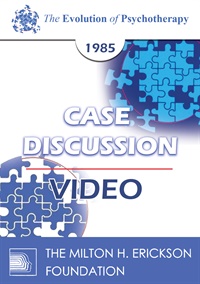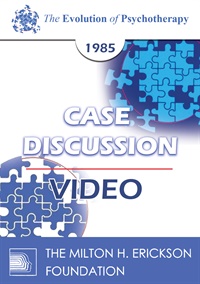- Average Rating:
- Not yet rated
- Topic Areas:
- Psychotherapy | Speeches | Therapist Development
- Categories:
- Evolution of Psychotherapy | Evolution of Psychotherapy 2021
- Faculty:
- Donald Meichenbaum, PhD
- Course Levels:
- Master Degree or Higher in Health-Related Field
- Duration:
- 1 hour
- Format:
- Audio and Video
- Original Program Date:
- Dec 03, 2021
- Short Description:
- This presentation will discuss ways to bolster resilience across the full life span from high-risk children youth adults and the elderly. It will examine the neurobiological and psycho -social changes that accompany engaging in resilience-engendering behaviors.
- Price:
- $59.00 - Base Price
- Average Rating:
- Not yet rated
- Topic Areas:
- Psychotherapy | Speeches
- Categories:
- Evolution of Psychotherapy | Evolution of Psychotherapy 2021
- Faculty:
- Daniel Amen, MD
- Course Levels:
- Master Degree or Higher in Health-Related Field
- Duration:
- 1 hour
- Format:
- Audio and Video
- Original Program Date:
- Dec 03, 2021
- Short Description:
- We are on the cusp of a new revolution that will change mental health care forever. The End of Mental Illness discards an outdated, stigmatizing paradigm and replaces it with a modern brain-based, whole-person program rooted in science and hope. No one is shamed for cancer or diabetes; likewise, no one should be shamed for depression and other brain health/mental health issues. Based on the world's largest functional brain imaging database, Dr. Amen will give you a completely new way to think about and treat issues such as anxiety, depression, bipolar disorders, ADHD, addictions, OCD, PTSD, schizophrenia and even personality disorders.
- Price:
- $59.00 - Base Price
Tags: Psychotherapy
- Average Rating:
- Not yet rated
- Topic Areas:
- Psychotherapy | Speeches | Therapist Development
- Categories:
- Evolution of Psychotherapy | Evolution of Psychotherapy 2021
- Faculty:
- Derald Wing Sue, PhD
- Course Levels:
- Master Degree or Higher in Health-Related Field
- Duration:
- 1 hour
- Format:
- Audio and Video
- Original Program Date:
- Dec 03, 2021
- Short Description:
- "In the United States, the omnipresence of racial bias and bigotry has led many to question the reasons for their persistence in light of widespread public condemnation. Social scientists have proposed a number of reasons for people’s failure to act: (a) the invisibility of modern forms of bias, (b) trivializing an incident as innocuous, (c) diffusion of responsibility, (d) fear of repercussions or retaliation, and (e) the paralysis of not knowing what to do. This presentation is aimed at addressing the last reason by providing participants with a repertoire of anti-bias strategies and tactics to overcome the expressions of microaggressions.
- Price:
- $59.00 - Base Price
- Average Rating:
- Not yet rated
- Topic Areas:
- Abuse | Speeches | Psychotherapy
- Categories:
- Evolution of Psychotherapy | Evolution of Psychotherapy 2021
- Faculty:
- Claudia Black, PhD
- Course Levels:
- Master Degree or Higher in Health-Related Field
- Duration:
- 1 hour
- Format:
- Audio and Video
- Original Program Date:
- Dec 04, 2021
- Short Description:
- After a detailed description of emotional abandonment, Claudia will discuss a variety of behavioral responses to the internalized shame. The need for control, perfectionism, procrastination, the dynamics of victimization and compartmentalized depression are many such examples that she will describe.
- Price:
- $59.00 - Base Price
Tags: Abuse Psychotherapy
- Average Rating:
- Not yet rated
- Topic Areas:
- Feedback Informed Treatment (FIT) | Psychotherapy | Speeches | Therapist Development
- Categories:
- Evolution of Psychotherapy | Evolution of Psychotherapy 2021
- Faculty:
- Scott Miller, PhD
- Course Levels:
- Master Degree or Higher in Health-Related Field
- Duration:
- 1 hour
- Format:
- Audio and Video
- Original Program Date:
- Dec 04, 2021
- Short Description:
- What can mental health professionals do to enhance their performance? Available evidence makes clear that attending a typical continuing education workshop, specializing in the treatment of a particular problem, or learning a new treatment model does little to improve effectiveness. In fact, studies to date indicate clinical effectiveness actually declines with time and experience in the field. The key to improved performance is engaging in deliberate practice. At this workshop, the latest research on deliberate practice will be translated into concrete steps all clinicians can immediately apply in their efforts to achieve better results.
- Price:
- $59.00 - Base Price
- Average Rating:
- Not yet rated
- Topic Areas:
- Psychotherapy | Speeches
- Categories:
- Evolution of Psychotherapy | Evolution of Psychotherapy 2021
- Faculty:
- Michael Miller
- Course Levels:
- Master Degree or Higher in Health-Related Field
- Duration:
- 1 hour
- Format:
- Audio and Video
- Original Program Date:
- Dec 04, 2021
- Short Description:
- Gestalt therapy envisions a radical conception of the self as temporal and emergent. This means it is a fluid self, continually changing through creative adjustment to its changing contacts with the world. One could think of the self in Gestalt therapy as an unending aesthetic project: Like all experience, it has to be made and remade as it navigates the passing of time. And it is reflexive, being both creator and created.
- Price:
- $59.00 - Base Price
Tags: Psychotherapy
- Average Rating:
- Not yet rated
- Topic Areas:
- Case Discussions | Psychotherapy
- Categories:
- Evolution of Psychotherapy | Evolution of Psychotherapy 1985
- Faculty:
- Bruno Bettelheim | Murray Bowen, MD | Mary Goulding, MSW | Thomas Szasz, MD
- Course Levels:
- Master Degree or Higher in Health-Related Field
- Duration:
- 45:13
- Format:
- Audio and Video
- Original Program Date:
- Dec 11, 1985
- Short Description:
- Case Discussion 01 Panel w/ Bruno Bettelheim, PhD, Murray Bowen, MD, Mary M. Goulding, MSW, and Thomas S. Szasz, MD. Moderated by William R. McLeod, MD.
- Price:
-
Sale is $29.00
price reduced from Base Price - $59.00
- Average Rating:
- Not yet rated
- Topic Areas:
- Case Discussions | Psychotherapy
- Categories:
- Evolution of Psychotherapy | Evolution of Psychotherapy 1985
- Faculty:
- James F. Masterson, MD | Salvador Minuchin, MD | Zerka Moreno | Paul Watzlawick, PhD
- Course Levels:
- Master Degree or Higher in Health-Related Field
- Duration:
- 1:01:34
- Format:
- Audio and Video
- Original Program Date:
- Dec 12, 1985
- Short Description:
- Case Discussion Panel 02 featuring James F. Masterson, MD, Salvador Minuchin, MD, Zerka Moreno, and Paul Watzlawick, PhD. Moderated by Ann Wright-Edwards, MS.
- Price:
-
Sale is $29.00
price reduced from Base Price - $59.00
- Average Rating:
- Not yet rated
- Topic Areas:
- Case Discussions | Psychotherapy
- Categories:
- Evolution of Psychotherapy | Evolution of Psychotherapy 1985
- Faculty:
- Ronald Laing, MD | Judd Marmor | Carl Whitaker, MD | Jeffrey Zeig, PhD
- Course Levels:
- Master Degree or Higher in Health-Related Field
- Duration:
- 55:11
- Format:
- Audio and Video
- Original Program Date:
- Dec 13, 1985
- Short Description:
- Case Discussion Panel 03 featuring Ronald D Laing, MD, Judd Marmor, MD, Carl A Whitaker, MD and Jeffrey K Zeig, PhD. Moderated by Paul Karoly, PhD.
- Price:
-
Sale is $29.00
price reduced from Base Price - $59.00
- Average Rating:
- Not yet rated
- Topic Areas:
- Case Discussions | Virginia Satir | Psychotherapy
- Categories:
- Evolution of Psychotherapy | Evolution of Psychotherapy 1985
- Faculty:
- Jay Haley, MA | Virginia Satir, MA, ACSW | Lewis R Wolberg, M.D. | Joseph Wolpe, M.D.
- Course Levels:
- Master Degree or Higher in Health-Related Field
- Duration:
- 58:18
- Format:
- Audio and Video
- Original Program Date:
- Dec 14, 1985
- Short Description:
- Case Discussion Panel 04 featuring Jay Haley, MA, Virginia M Satir, ACSW, Lewis R Wolberg, MD, and Joseph Wolpe, MD. Moderated by Paul Karoly, PhD.
- Price:
-
Sale is $29.00
price reduced from Base Price - $59.00
Please wait ...


